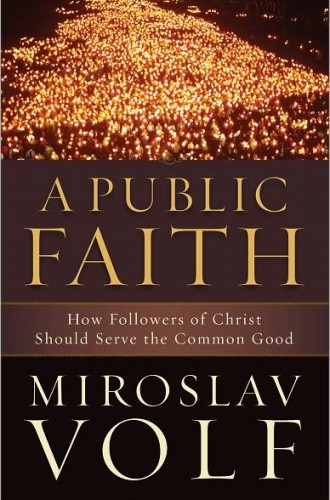A Public Faith, by Miroslav Volf
Of the rewriting of H. Richard Niebuhr's Christ and Culture there shall be no end. Miroslav Volf is too sophisticated a theologian to rehash or imitate Niebuhr's celebrated fivefold schema, but A Public Faith, like other contemporary forays into this well-traveled territory (one thinks of James Davison Hunter's To Change the World), remains in the shadow of Niebuhr's defining work.
Volf is clear that there is no single model for Christian interaction with the "world." There can be no unmitigated opposition or whole-scale transformation. Instead, Volf advocates a blend of "accepting, rejecting, learning from, transforming, and putting to better uses various elements of an internally differentiated and rapidly changing culture." So why write this book, if there is no compelling argument to make or focal image to propose? If encounter is best imagined as a series of ad hoc relationships based on appropriate witness in diverse contexts, then why labor, from various angles, to advance a theory that there is no theory?
The answer is simple—and threefold. Christians have often got this answer badly wrong, whether in favoring a domineering presence or an otherworldly absence. And those most eager to advance an unapologetic public presence of faith are often those like Sayyid Qutb, the "godfather of radical Islam"—in short, advocates whose perceptions do not always advance the common good.






